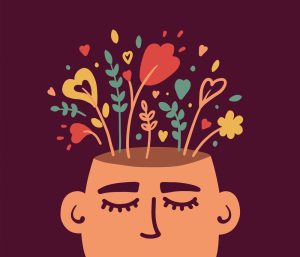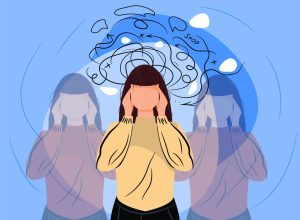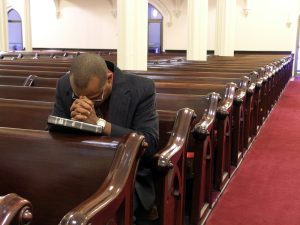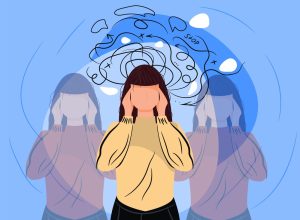Multicultural counseling proficiencies are essential to good counseling. Since Western counseling initially emerged from Europe it is culturally immersed with European culture values. European culture is very individualistic, self-centered and free of many forms of oppression due to the fact Europe was the colonizing force between the 16th and 19th Centuries. Furthermore, while Europe’s secular awakening drove a wedge between its Christian culture and itself, Christianity still plays a key part of life in millions of individuals of European descent, as well as a driving force behind the intent of nations to colonize. With these things in mind, the classic male European descent counselor must be aware of his cultural identity and how that same identity translates his world views, as well as how others of different cultures perceive him as a person when counseling. Within melting pots nations, such as the United States or Canada, many minority cultures can look upon counseling itself with suspicion as a Western custom created by white men.
Grief and loss is also cultural and is expressed differently. This type of difference that inherently exists within different grieving cultures needs to be understood and respected within the grief counseling session itself. Kastenbaum points out that many from a different culture can misinterpret expressions of grief or rituals within another culture (2018, p.372). Please also review AIHCP’s Grief Counseling Certification, as well as its Grief Diversity Counseling Certification to learn more about responding better to other cultures during times of grief.
The African American Experience and Counseling

African American culture has an intense pride in its African heritage and its rich spiritual and cultural beliefs and rituals. While many in America have been culturally separated from the home continent and completely interwoven into a unique African American culture with its own history and adaptations, there still remains a strong echo of the past for many who look to rediscover their roots. African consciousness possesses ancestral wisdom, naturalistic attitudes, rhythm, and creativity (Pedersen, 2018, p. 147), These images help many African Americans tie to a greater power and consciousness to face the oppression they have faced for centuries. This consciousness helps blacks create a stronger self concept, self esteem and self image about themselves that was stolen so many centuries ago (Pedersen, 2018, p.147)
Due to imperialism, oppression and the slave trade, many African Americans cannot trace their lineage and families as European Americans. Many tribes of the Congo, Yoruba, Wolof and Ibo were targeted for the salve trade (Pederson, 2018. p. 145). Many of the records and identities of abducted human beings into the slave trade were erased from history and replaced with new roles and titles on various American plantations. In many cases, these individuals took upon the name of the slave owner or when emancipation occurred chose a simple American name. Hence some African Americans have a yearning to reconnect to their cultural heritage that was stolen from them.
When counseling with African Americans, there is large diversity to consider. Many marginalized blacks in America have been robbed of economic stability for generations. This has led to a succession of poverty, less education and less opportunity. Some blacks have been able to bridge the gap and are successful and resent the idea that they are marginalized and find pride in their work ethic and success. Some black communities are very religious and hold strong to the Christian faith, especially in Baptist congregations. Immigrant Africans hold stronger to the older ways of tribalism, honor, family, ancestors and have a far more spiritualistic religion than many Christian blacks. Some African immigrants share a combined spiritualism and Christian belief system as well.
Yet, within all the diversity, their exists the soul wound of imperialism and slave trade that forever scarred the continent of Africa. Whether from Africa and enduring genocide and civil wars due to European imperialism of the 18th and 19th Centuries, or from the United States and scarred from the history of slavery, segregation, economic theft, and racism, both African groups have historically faced collective wounds that have been transmitted from one generation to the next. This type of historical disadvantage has created numerous imbalanced economic opportunities. In addition, overt racism or systematic racism that exists within the system, has made the African American experience a far different experience than the European experience. Racial profiling, job discrimination and prejudices continue to haunt the black community. These incidents make even a random police stop into an entirely different ordeal for an African American than a white person. Hence when counseling a black client, one must realize racism and oppression have shaped the development and experiences of black people worldwide (Pedersen, 2018, p. 145).
It is important also when counseling African Americans to understand the value of family and groups within their grieving processes as well as life issues. Many African Americans turn to family and support and church before they look for mental health care. Group therapy and community interventions are more relatable to these social structures and can be beneficial for many African Americans (Pedersen, 2018, p.154). African Americans in general also prefer more naturalistic healing interventions, and prefer more so to face personal issues with action (Pedersen, 2018, p. 155). Again, these are collective statistics and each individual is different. When counseling across culture, it is important to remember the dictum of Kluckhohn and Murray (1949) that “each person is like all other persons, like some other persons and like no other person (Pedersen, 2016. p.42)”.
When helping African Americans who are grieving it is important to understand the numerous social issues that apply daily anxiety and sadness to the unique black experience in America. In addition, utilizing African American spirituality, family and church structures as well as modeling coping strategies after African American strengths can all play a key role in helping African Americans grieve in a more healthy way.
Counseling Mistakes with African Americans
Like many minorities, there can exist a mistrust for white mental health counselors. Even though African Americans make up the second largest non-white group in America, they still only represent 12 percent of the population (Pedersen, 2018, p. 144). With this in mind, counselors need to understand that blacks may not always be comfortable with a white counselor or someone from a different socio-economic background. Many blacks do not feel that the suburban American truly understands their concerns or fears.
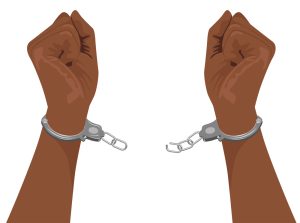
White counselors need to understand the importance to acknowledge the concept of “White Privilege”. This refers to the unearned societal awards that are given to the white culture based on color of skin (Pedersen, 2018, p. 146). While liberals sometimes have taken the notion to far as to dismiss personal achievement and ignore poor life choices of others, one must conclude due to the centuries of oppression as well as economic imbalance given to the black community that better life opportunities have been granted overall to more whites than blacks in the present day. It is important to acknowledge this in counseling as well as publicly. It helps heal past soul wounds and helps generate awareness to possible past thefts against the black community and present day attempts to rectify those injustices. Again, this does not justify a black person to live a life of crime but it does suggest a better understanding of why so many blacks fall victim to a life of crime due to inherited poverty due to past injustices against their community. Hence in counseling, it is important for a white counselor to check him/herself and understand the role their color and experiences brings to the counseling room (Pedersen, 2018, p. 146).
In addition, Pedersen points out that ignoring race in counseling can also be negative. He refers to this concept as “Color Blindness” (2018, p. 146). When one attempts to ignore the role of color and race in a client’s life struggles and problems, then the counselor can miss the importance that oppression and soul wounds can play on a particular group’s mental health. The APA suggests that counselors always consider how racism and discrimination can be sources of distress for black populations (Pedersen, 2018, p. 146). In addition, conversely, imagining no color exists between counselor and client can also play a negative role in the counselor understanding his/her color as a factor in the counseling process.
Another mistake to avoid is the historically and inherently prejudice studies on black populations. Assumptions on African American attitudes and reactions to life have in the past resulted in an over diagnosis of schizophrenia and an under diagnosis of depression and anxiety (Pedersen, 2018, p. 152). While African American communities have historically suffered less from suicide due to family and church connections, studies also show like anyone, if an African American suffers from depression or substance abuse, his or her chance of suicide rises like anyone else. Also, it is important to note that when working with African Americans, there is a far higher chance of the clients exposure to violence or PSTD (Pedersen, 2018. p. 153). This greatly leads to a higher trajectory of African Americans who suffer from depression, grief, loss and anxiety.
Conclusion

African American heritage is rich and beautiful with family, heritage, ritual, and spiritual life. Tapping into these elements give blacks a higher appreciation of self and worth and tie them to a greater story. Unfortunately, slavery and oppression stole this identity centuries ago and many African Americans in the United States suffer intense soul wounds associated with the history of slavery, oppression, racism and discrimination. These things cannot be ignored but must be understood in factors leading to many modern day issues African Americans face. Counselors need to be aware of these issues as well as their own color and race when working interracially with a black person. White persons must understand that differences exist and sometimes need addressed to help promote healing. Also, like in all multi cultural issues, counselors must be alert not to over generalize or under generalize a person. Each person is unique but at the same time within a particular race or culture usually shares some common issues or problems.
Please also review AIHCP’s Grief Counseling Certification. The program is online and independent study with mentorship. For those who are already a Certified Grief Counselor, then please also review AIHCP’s Grief Diversity Counseling Certification and see if it meets your academic and professional goals in working with diverse populations.
Reference
Pedersen, P. et. al (2018). “Counseling Across Cultures”. (7th). Sage
Additional Resources
Williams, M. (2011). “Why African Americans Avoid Psychotherapy”. Psychology Today. Access here
Watkins, S. & Andrews, A. (2021). “Creating & Maintaining Safe Therapeutic Spaces for Black Clients”. Advances in Addition Recovery (Winter 2021). Access here
Alang, S. (2019). “Mental health care among blacks in America: Confronting racism and constructing solutions”. Health Serv Res. 2019 Apr; 54(2): 346–355. Published online 2019 Jan 27. doi: 10.1111/1475-6773.13115. National Library of Medicine. Access here
Carrouthers, Z. (2014). “Yes, There’s a Stigma with Counseling in the African-American Community”. ThriveWorks. Access here




